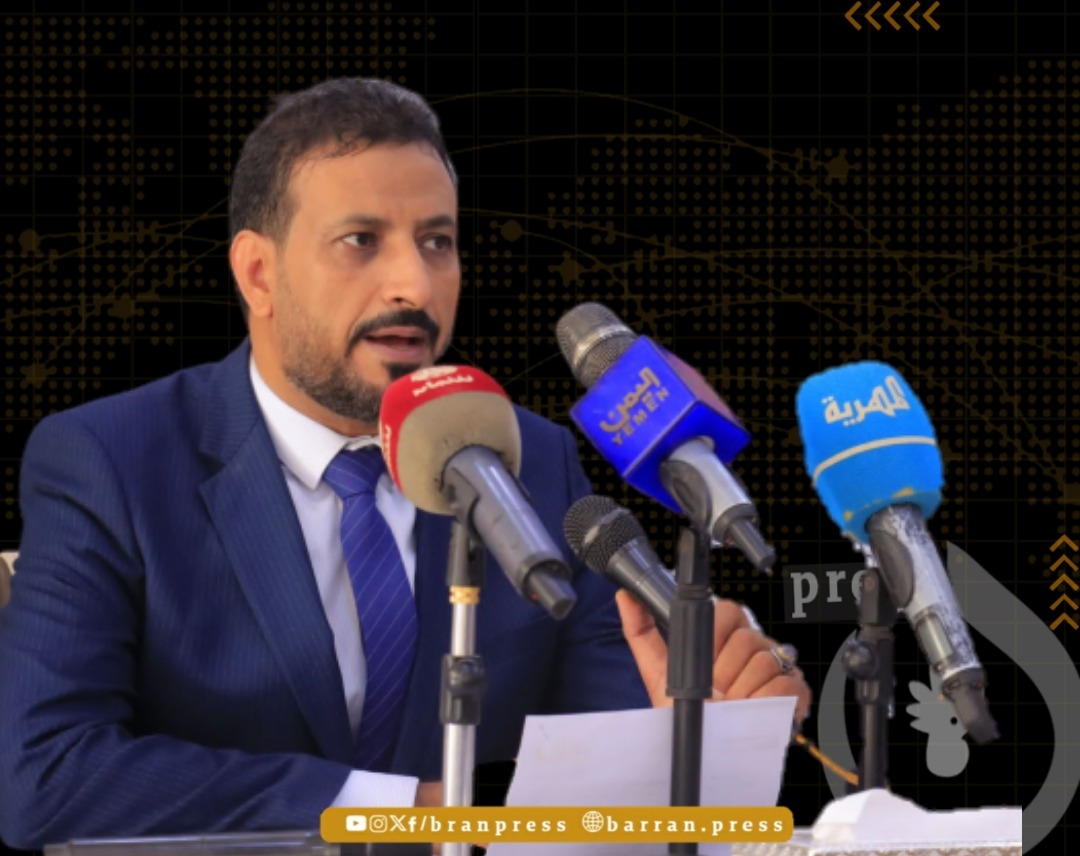


Barran Press
On Sunday, May 26, 2024, Mohammed Al-Salehi, the head of the Berran Media Foundation, stated that the Houthi group, globally designated as a terrorist organization, has transformed the Yemeni geography under its control into a "large prison" where "physical and psychological torture" is inflicted upon Yemenis.
During an interview with Al-Arabiya TV, Al-Salehi accused the Houthi group of besieging the population within by closing the roads leading to and from the areas under their control.
He stated that they only open the entrances for the people to leave or enter twice a week, subjecting hundreds of vehicles and travelers to long queues at those checkpoints. Furthermore, he mentioned that they even prevent emergency medical cases from crossing.
As an example, Al-Salehi said that the Houthi group blocks the roads leading to the areas under its control in southern Marib and controls the population through a single border crossing called "Harra." He added that the residents have nicknamed it "Rafah Crossing" about the suffering of Gaza's residents due to Israeli restrictions at the Rafah border crossing with Egypt.
He further revealed that the Houthi restrictions at the "Harra" crossing in southern Marib resulted in the death of a girl. Her father was trying to transport her for medical treatment, but the Houthis prevented her passage due to the lack of permission.
According to Al-Salehi, a citizen in the areas under Houthi control cannot leave their village without permission from the group. It takes a week to receive a response granting or denying permission. The permission process involves the group knowing the reason for leaving, the destination, the duration of stay, the accompanying individuals, and the expected return date. Additionally, a resident within their controlled areas must provide collateral to ensure their return within the specified time.
He stated that Yemen has never witnessed such measures before, nor has any country in the world, not even the Israeli occupation authorities with Palestinians.
Furthermore, Al-Salehi added that the Houthi group does not treat Yemenis as citizens but rather turns their land into a new colony and settlement. He added that the group has established new prisons in those areas and detains and abducts tribal members, causing their disappearance.
Additionally, "Al-Salehi" mentioned that the Houthis at these border crossings loot the materials and foodstuffs belonging to citizens coming from outside their controlled areas under the pretext that they are American goods or from the legitimate government.
Moreover, "Al-Salehi" drew attention to the forced displacement and occupation of homes carried out by the Houthi group, including the residents of the Al-Jobah district in southern Marib. He stated that the group displaced them and replaced them with their followers brought from several provinces.
Regarding this, Al-Salehi spoke about the demographic change being implemented by the Houthi group in the Al-Jobah district, where 95% of the population was displaced. He considered this the "largest displacement ratio in the republic" and stated that the group settled its members in the residents' homes, who were brought from Saada, Hajjah, and other areas.
Furthermore, Al-Salehi highlighted the crimes and violations currently perpetrated by the Houthi group against the people of the Nihm district, east of Sanaa. He stated that this reveals a part of the suffering and violations experienced by the population in those areas.
He stated that those who managed to escape from these geographical areas revealed the extraordinary suffering they endured in their land under the control of the Houthi group, encompassing various aspects, including cultural and religious restrictions.
According to Al-Salehi, what is happening in the geography under the control of the Houthi group remains completely hidden from the media due to the oppression exercised by the group against journalists and activists, as well as the restrictions imposed on the work of local and international human rights organizations.